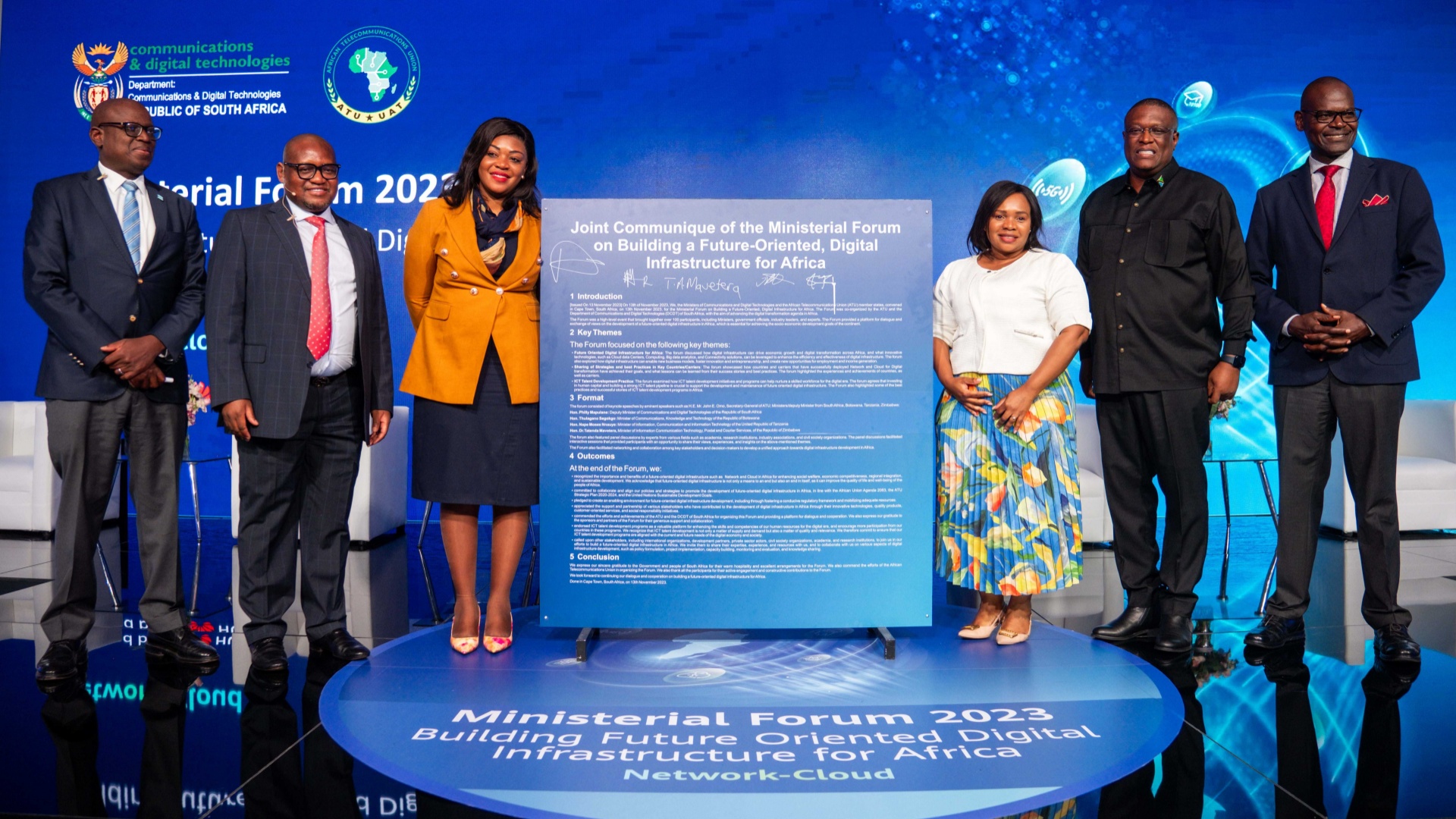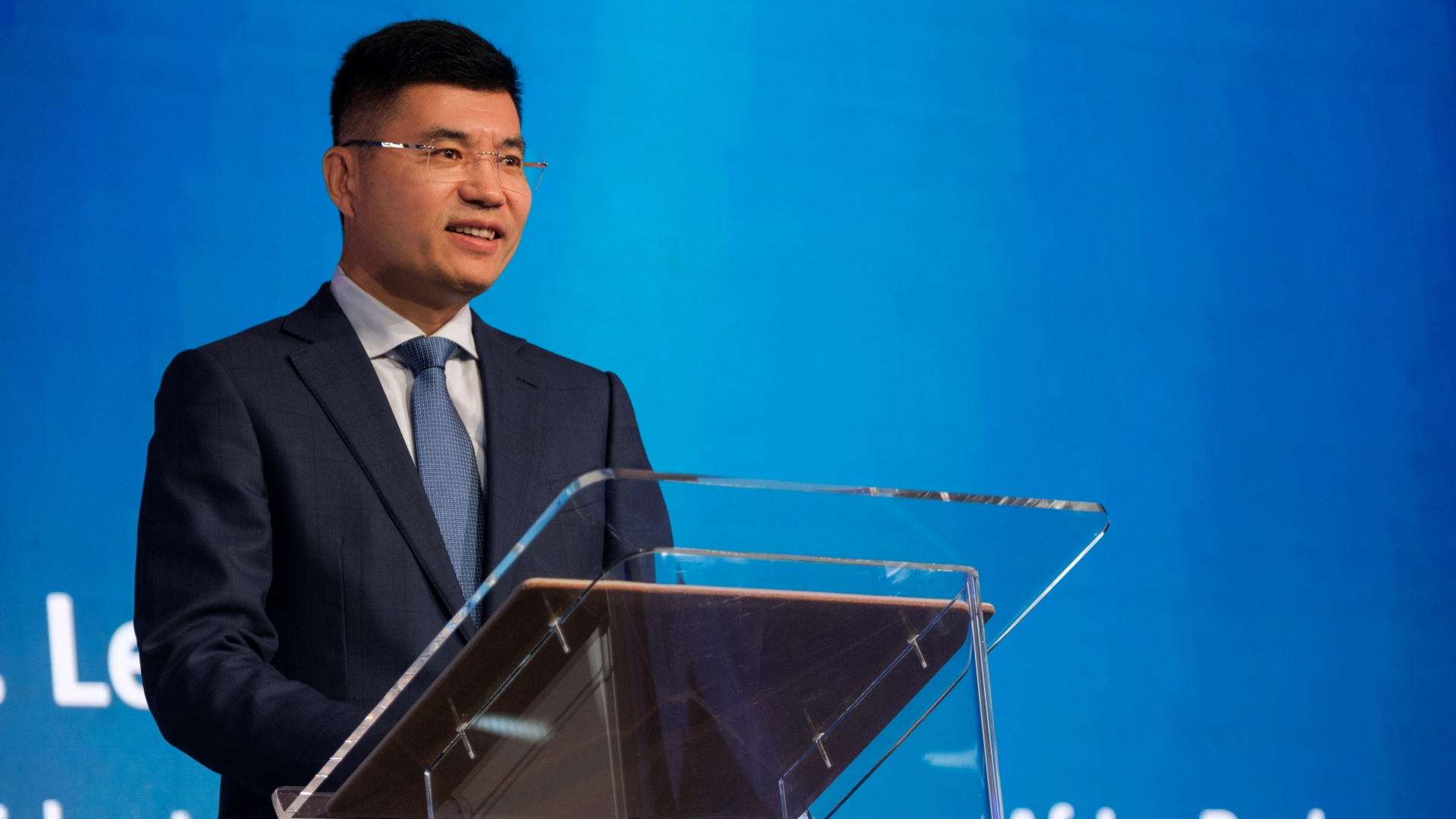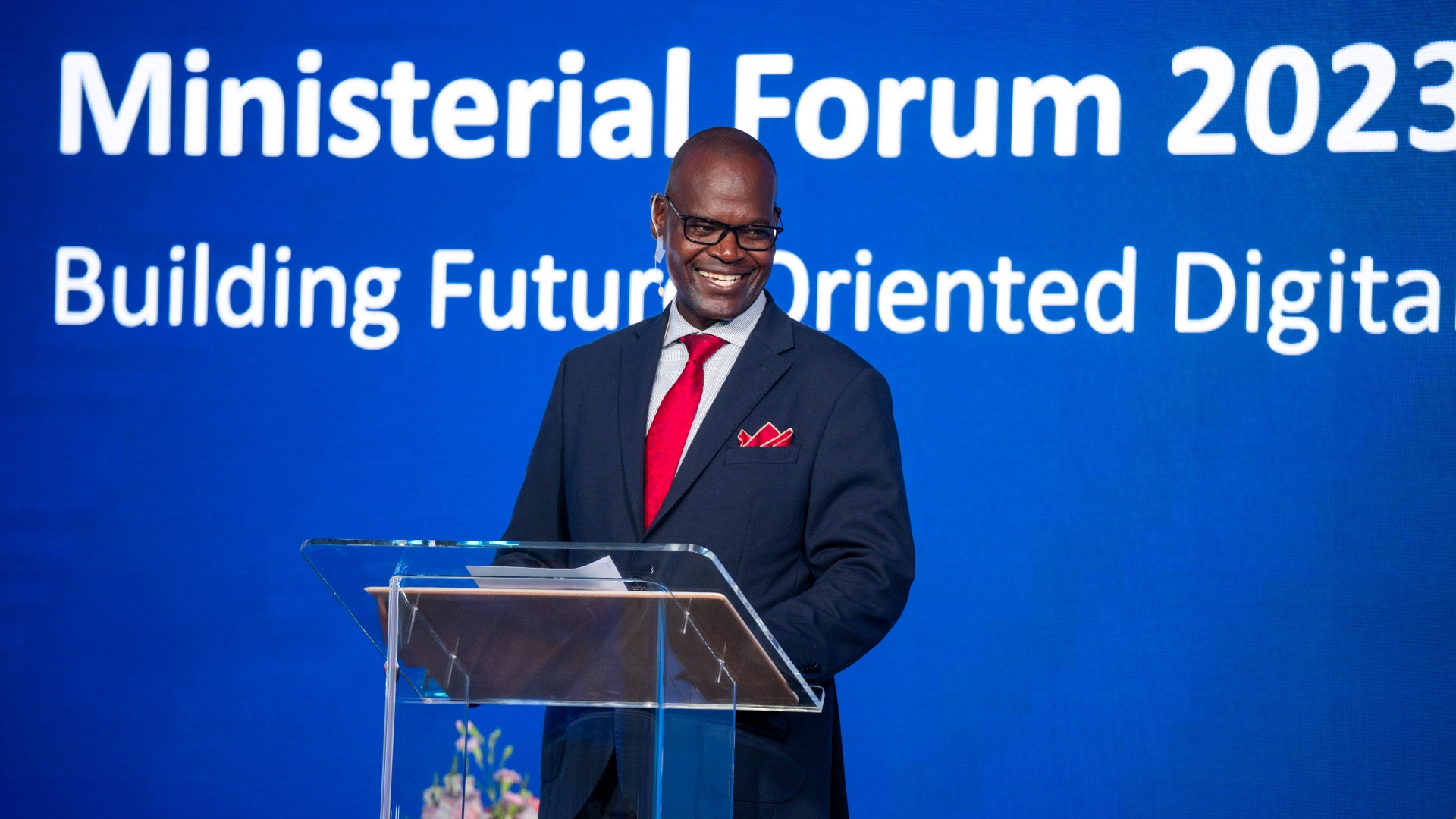- ICT ministers and the ATU held an event on the eve of Africa Tech Festival 2023 with the aim of advancing the digital transformation agenda on the continent.
- It saw several stakeholders, including Huawei, prioritise the development of future-oriented digital infrastructure.
- “To build One Network, countries should continue to build national broadband backbone networks to serve as the arteries of national network connectivity,” noted Huawei’s Leo Chen.
Today marks the start of the 2023 edition of Africa Tech Festival. As was the case last year, Huawei was involved in bringing together a number of stakeholders at an event on the eve of the week-long Festival, in order to highlight the need for future-oriented infrastructure on the continent.
The Ministerial Forum, was co-organised by the African Telecommunications Union (ATU) and the Department of Communications and Digital Technologies (DCDT) of South Africa, with the aim of advancing the digital transformation agenda on the continent.
The Forum closed with a joint communique (pictured below) underlining the importance of collaboration between all stakeholders in building a future-oriented infrastructure for Africa.

As John Omo, secretary general of the ATU highlighted during his opening remarks for the event, the Forum emphasised the need for Africa to focus and strengthen the construction of high-speed networks (4G, 5G, and fibre), as well as the implement high-performance cloud computing capabilities across the region.
“In the space in which this forum operates, we have the ability to create consensus on which way to go in building future-oriented digital infrastructure for Africa. We know the place of digital infrastructure in the global arithmetic that defines the compass of progress. We also know that to find our bearing on this compass, we must be deliberate about the actions we take to protect the future of Africa,” he explained.
“I must note that it is also through the synergy of governments, private sector entities, research institutions, and international organisations that we can realise the full potential of our collective efforts. What this means is that inclusivity should be a guiding principle as we shape the future of digital infrastructure. We must ensure that the benefits of technological advancements reach every corner of society, leaving no one behind,” added Omo.
From a Huawei perspective, and taking a key role in making future-oriented infrastructure possible, president for Sub-Saharan Africa, Leo Chen, was cognisant that a lot of work needs to be done, especially when it comes to tackling underserved areas and placing them on par with other regions on the continent.
These improvements, he unpacked, are best achieved through the One Network, One Cloud approach advocated by Huawei.

“To build One Network, countries should continue to build national broadband backbone networks to serve as the arteries of national network connectivity. In addition, such backbone networks should be extensible across multiple domains. This means they should be able to connect to different metropolitan area networks and campus networks. Similar to a highly-developed neural network, they will connect the last mile of connectivity to meet the needs of different scenarios,” he enthused.
“The national cloud platform can serve as the foundation for a country’s advanced technological innovation, and can greatly improve the capabilities of governments and enterprises to adopt new technologies. With the national cloud platform and cloud infrastructure, African countries can also unlock huge potential in the ‘e-government’ cloud. One example from China can represent a future trend. In Shenzhen, where Huawei is headquartered, citizens can complete almost all of the government service items with at most one visit to the service office, or without even making a physical visit at all,” he illustrated.
This was a sentiment echoed by South Africa’s own Philly Mapulane, deputy minister of the DCDT, who noted that this Forum should serve as a jumping off point to drive collaboration and innovation not only in SA, but across the continent.

“This gathering marks a significant milestone in our collective pursuit of a digitally empowered Africa. We are here not merely as representatives of our respective nations and organisations, but we are here as architects of a shared vision — one that envisions an Africa propelled into a future where the possibilities of connectivity are boundless,” he emphasised.
“Today, we are not just building a digital infrastructure; we are laying the foundation for the socio-economic emancipation of our continent. Let us envision a future where our digital infrastructure is seamless, intelligent, and accessible to all,” concluded Mapulane.
[Images – Provided]

